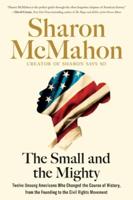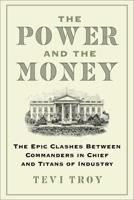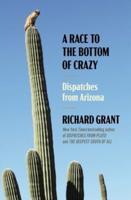Publisher's Synopsis
This study deals with the complex issues of race, history and politics in Caribbean society. In its first part, "François Besson", it examines the fortunes of a French creole family between the mid-18th and early 20th centuries, and describes their experiences against the backdrop of the social and political conflicts occasioned by the excesses of plantation slavery and the upheavals of the French revolution. It looks at Julien Fédon's revolution of 1795 in Grenada, examines the nature of the relationship between master and slave, the children of these unions, and the deadly divisions that were at times engendered as a result of the custom of the plaçage (concubinage), causing 'victors' or 'victims' of "The Cult of the Will" to emerge; thus influencing at times the destiny of these islands. The second part of the book, "Eric Williams", studies the manner in which an historian-turned-politician, tragically afflicted by "The Cult of the Will" and perhaps convinced that history is destiny, used, in Trinidad and Tobago, the politics of inherited guilt and inherited victimhood to create scapegoats in an attempt to assuage his "Inward Hunger", while making clever use of 'Black Nationalism' that was becoming popular in the 1950s. Revisionist in its scope, this book undertakes to change our understanding of the past, so that we may create a more useful future. It examines the points in time when the historical narratives of the country changed, occasioned by a shift in moral values, bringing about a different interpretation of its history. It ponders the question whether the presidency of Barack Obama may mark the end of the Eric Williams narrative of victimhood, scapegoating and irresponsibility as expressed in its politics, and herald the start of a new, New World narrative endowed with empowerment and responsibility. "Your thesis comes across as logical, though speculative at times, but put together with the deprivations he (Eric Williams) admittedly experienced at Oxford and at the Caribbean Commission, the victimhood narrative is plausible, and indeed has become disruptive of this country's civility, democracy and ethnic harmony . . . You have created a serious challenge to orthodoxy. You have broken up quite a few myths, and in fact forcefully argued how the passion for psychic compensation and restoration by Williams has led to an intensely institutionalized culture of victimhood. A victimhood now challenged by Obama, a challenge which not only shifts the paradigm but holds better promise for spiritual growth and the shaping of a common humanity." (Professor Emeritus Ramesh Deosaran) Gerard A. Besson is a publisher, writer and historian who specialises in the history of Trinidad and Tobago and has worked in all media in a career that has spanned four decades. In 2007, he was awarded the Hummingbird Medal (Gold) for Heritage Preservation and Promotion.








